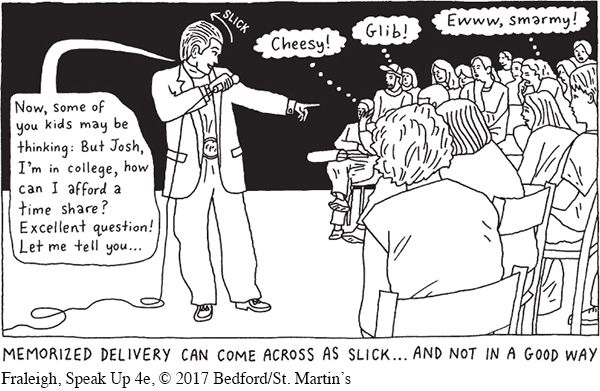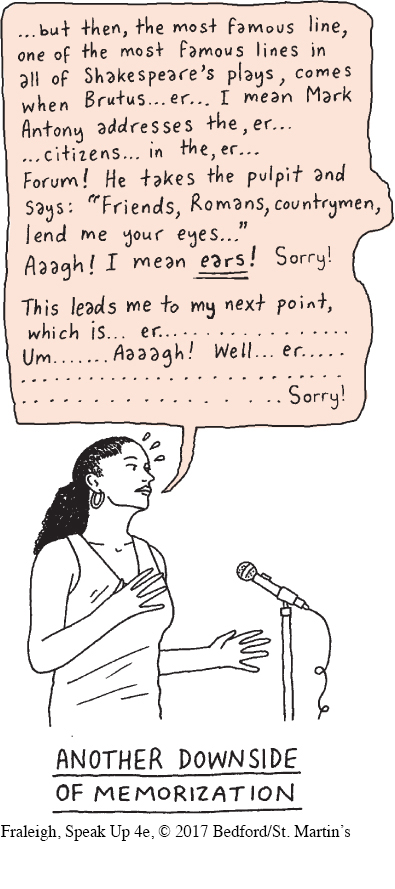Memorizing From a Manuscript
To recite a speech memorized from a script, you learn your script word-
371

This delivery mode does offer some advantages over reading from a script. There’s no barrier between you and your audience, so you can maintain eye contact with listeners throughout your speech. This allows you to be more natural when using gestures and visual aids. And like reading from a manuscript, you can control your word choice by repeating precisely what you’ve memorized. Memorization was a key feature of classical rhetorical training, but it is no longer considered the best form of speech preparation and delivery in most situations.
This mode of delivery has several disadvantages. For one thing, memorized presentations often come across as slick and prepackaged, or “canned.” Listeners may view the speech as a stale performance delivered the same way every time, regardless of the audience. As a result, they may take offense or lose interest.
Memorizing is also very challenging, especially with a long speech. And people who speak from memory are typically wedded to their text; the presentation can grind to a halt if the speaker forgets even a single word or sentence.
372
Because this delivery mode’s disadvantages outweigh its advantages, we recommend avoiding it unless you have a specific background in memorizing large bodies of text (as a trained actor, for example) and your speech situation requires it.
